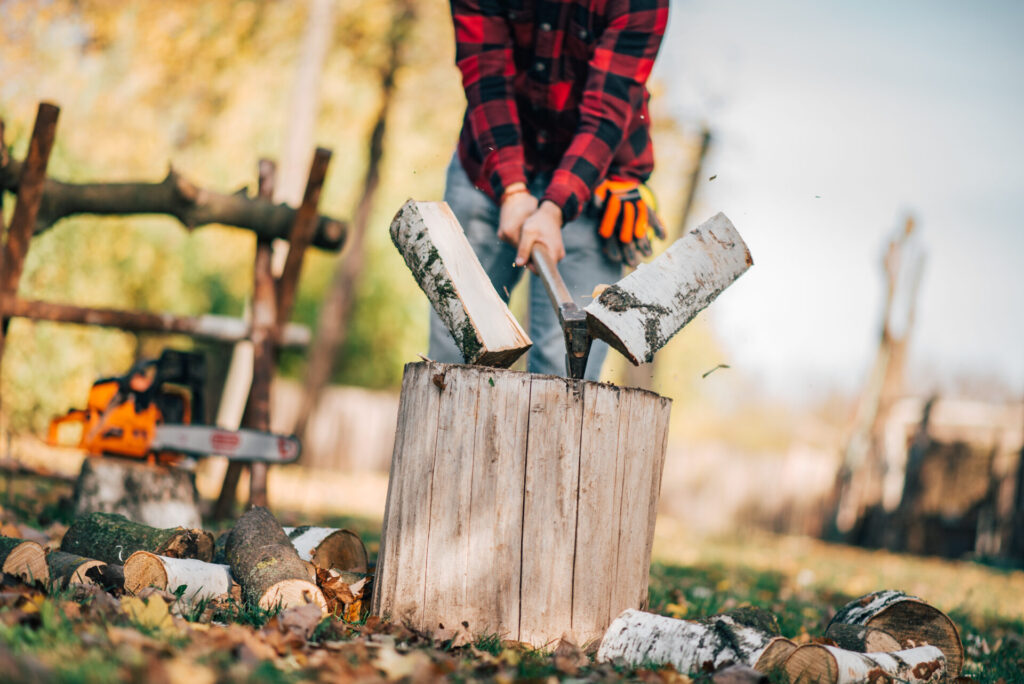Maryann glances at her iPhone to see how many steps she’s done. The number 2,791 makes her grimace. She’s nowhere near her 10,000-step daily goal and it’s now 9pm – she’s about to settle down to watch her latest Netflix mini-series.
‘I did a full day’s work from home,’ says Maryann, 37, an account manager. ‘Once I finished, my groceries were delivered. By the time I unpacked them, then answered some urgent work emails, I was too tired to start cooking so I ordered in supper. By the end of the day, I just want to crash on the sofa and watch a boxset.
‘It’s no wonder I don’t sleep very well, as I barely move. I’m also getting more and more anxious about things I used to do easily, like giving presentations at work, speaking up in meetings and doing anything new and out of the ordinary. New people, new places, things like that, they make me nervous! I never used to be anxious about anything. I was always the confident one.’

Maryann, who’s divorced, is a victim of the comfort crisis, a term used to describe our modern-day ‘convenience without effort’ lifestyle. Need a cab? Not only can you order one on your phone, you can also see how far away it is. Nothing in to eat? A few clicks on a phone will sort that. Looking for a date? Download a dating app and start swiping. Our lives have never been more comfortable, yet in many ways we’re less resilient than ever.
Dubai-based life coach Amanda Davies explains: ‘We barely need to move. Everything comes to us, from TV and movie streaming services to food deliveries and remote work, Zoom coaching and virtual therapy. We can manage our entire lives from one place, smartphone in hand.
‘There’s no travel, no waiting, no saving up, no discomfort, no physical exertion. Everything is on demand, from food shopping and entertainment to admin, fitness and relationships’
Amanda Davies, Life Coach
‘There’s a danger that working from home and having everything available at the press of a button or app, that you may not leave the house for days.
‘There’s no travel, no waiting, no saving up, no discomfort, no physical exertion. Everything is on demand, from food shopping and entertainment to admin, fitness and relationships.
‘Petrol is delivered to our driveways. Dry cleaning, beauty treatments, even physiotherapy come to us, often within the hour. And with air con in every room, we don’t even need to feel hot or cold anymore.

‘Even household appliances do more work for us. Washing machines and dryers have apps. Smart fridges tell us what’s missing and robot vacuums glide around the house. We’ve engineered a life that runs itself, a life that’s fast, easy, seamless and paperless. The effortless world comes to us.’
There’s no denying life is easier – in many ways. Just a couple of decades ago, we went out to work, the shops and the bank, and for meetings, fitness and beauty, all of which, says Amanda, involved more manual effort, problem-solving and interdependence with others.
But surely our easier lifestyle should be freeing up time so we can develop and push ourselves to do better, more important things?
The Comfort Crisis Unpacked
Jan Gerber, CEO and founder of Paracelsus Recovery, an addiction and mental health service in London and Zurich, explains discomfort is a necessary part of life.
Says Mr Gerber: ‘Whether it’s a cold plunge, a difficult conversation, or a physical challenge, healthy discomfort reminds us we are alive. Avoiding it altogether leads to disconnection – not just from others, but from ourselves.
‘The brain evolved to overcome challenges, not avoid them. When discomfort appears, so too does the neurochemical reward that comes with meaning, satisfaction and growth.’
Talane Miedaner, a UK-based coach and writer, agrees that challenges, problems and discomfort are all good for us, and she adds that we’re simply getting ‘too soft’.

‘As life becomes easier, with technology and advances, there are fewer opportunities to build grit,’ says Talane, author of Coach Yourself to Success (McGraw Hill). ‘In the old days we had to go out and chop wood, pump water, handwash clothes. We had built-in physical stress and strain, and we were fitter and stronger. Adversity came free with life.
‘We went to the video shop if we wanted to rent a movie. Now we have hundreds available instantly at the press of a button. We used to go to the library to get books. Now we can download them or get them delivered from Amazon. Everything is deliverable at the click of a button. It’s like a magic genie.
‘We’re so spoilt, we complain if we have to walk more than five feet across the kitchen to boil a kettle for hot water or if our WiFi goes down.
‘We’re so spoilt, we complain if we have to walk more than five feet across the kitchen to boil a kettle for hot water or if our WiFi goes down…The problem is that all this ease is making us physically and mentally flabby’
Talane Miedaner, Author
‘The problem is that all this ease is making us physically and mentally flabby. We’re becoming impatient because we are used to getting things immediately.’
So, by making life easier, it seems – ironically – we’ve made ourselves weaker and less able to cope with crises.
Amanda concludes: ‘In removing the minor struggles, we’ve also weakened the scaffolding that helps us hold ourselves together during the big ones. When something truly hard, such as illness, job loss or conflict, happens, we’re not just softer and less resilient, we’re more anxious, more self-critical and often more disconnected from our community.
‘Comfort hasn’t made us calmer and life easier. If anything, it’s made us more fragile, because we no longer practise tolerating discomfort in everyday life.
‘Whether it’s holding a plank, carrying heavy boxes, navigating a difficult conversation or just sitting with boredom without our phone, that discomfort is building psychological resilience. It also sharpens our self-trust and feeds our positive self-belief.’
Facing the Comfort Crisis
So how can we start to boost our resilience? Amanda and Talane share their tips:
Train your brain
Ditch the distractions, recommends Talane.
‘When we’re constantly distracted, we’re not using our pre-frontal cortex, which is our thinking brain,’ she explains. ‘Leave your phone at home when you go out or put it in another room for a few hours when you’re in the house. You’ll start to use your thinking brain – this is where your best thoughts come from.’
Challenge yourself!
Get out, get moving and get physical, suggests Amanda.
‘Choose something you don’t want to do, but something which you’ll be proud of afterwards,’ she says. ‘You might get up 30 minutes earlier and do a short HIIT or YouTube yoga session in your living room. You could walk the stairs in your building rather than taking the lift, do 15 minutes in the pool or join a mall-walker group and get your steps in before 10am.’
Join a book club

As well as being a cosy get-together, a book club can develop mental toughness, says Talane.
‘Fiction is harder than non-fiction because you have to follow characters and a plot,’ she says. ‘If you join a group, where you don’t always choose what you read, you will be exposed to different types of books, you’ll have a deadline and you’ll need to come up with points to discuss, as well as socialise at the meeting. It will stretch you in so many ways.’
Cool it down
Take a cold shower or a cold plunge, recommends Talane.
‘As people age, they lose their ability to regulate temperature,’ she explains, ‘so we need to challenge our bodies to adapt. We grow more tiny capillaries on the edge of our skin if we’re exposed to cold, and they help our resilience to cope with it in future.’
Be a beginner
Start something new, so you feel awkward, inconsistent and imperfect again, suggests Amanda.
‘Learn Arabic, pick up sketching, do a 30-day challenge like Duolingo, try journalling or go for early morning swims in the sea,’ she says. ‘The point is to be a beginner where every step is conscious learning. This builds humility, resilience and self-kindness.’
Take the adversity challenge
Do something that makes you feel physically uncomfortable, says Talane.
‘Sleep on the floor one night, camp out in your garden or on the beach, walk barefoot, go out in the rain or skip a meal,’ she suggests. ‘Do something you’re afraid of, like a journey or decluttering part of the house. It might be uncomfortable, but it will show you that you will survive and you will feel stronger for it.’
Get outside

It’s easy to stay indoors 24/7, especially when temperatures are soaring, so challenge yourself to go out, says Amanda.
‘Do a ten-minute walk before 7am, water the plants or have your morning tea or coffee on the balcony or in the garden instead of at your desk,’ she says. ‘That small exposure to heat, light and sky resets your nervous system, provides a boost of vitamin D and reminds your body that you’re not just a brain floating on Zoom!’
Make life boring!
Boredom is a way to build resilience, says Talane.
‘Just sit for ten minutes and do nothing,’ she suggests. ‘You could try meditating. Focus on your breathing. All sorts of thoughts will flood into your head, but you can refocus. You’ll see how easily your brain can be distracted. This is a form of brain training.’
- For information about Talane Miedaner’s work, go to www.lifecoach.com









